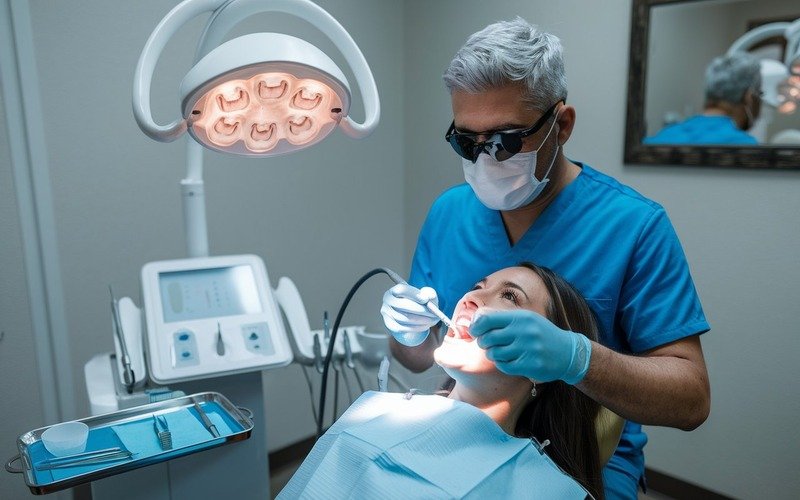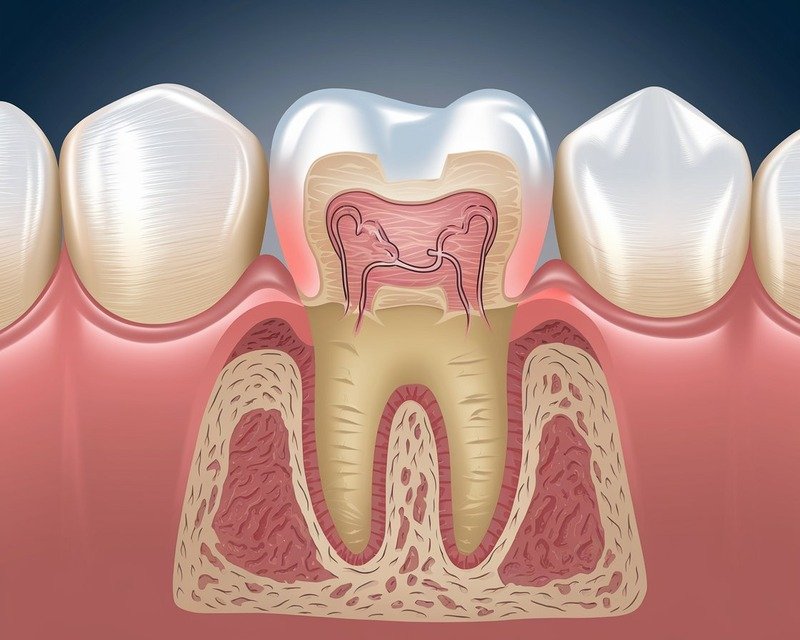
Picture this: You’re walking outside on a crisp winter morning, grab a quick breath of that freezing air, and suddenly-OUCH! A sharp pain shoots through your teeth that makes you wince. You’re wondering if something’s seriously wrong or if this is just another weird body thing nobody talks about.
Good news: Tooth sensitivity to cold is super common, and you’re definitely not alone. In this guide, we’ll break down exactly why your teeth feel like they’re having a total meltdown every time the temperature drops.
Why Do Teeth Get Sensitive to Cold Anyway?
Let us discuss a universally shared experience: the excruciating pain when biting into an ice cream cone or when taking a breath of winter air. Your teeth are not just making a scene; there is credible science behind cold sensitivity.
Teeth are intricate structures housing microscopic tubes within the enamel. When that external protective layer is worn down or damaged, those tubes become like minuscule highways for temperature sensations to your tooth’s nerve center.
Picture a bunch of exposed wires inside your teeth that react dramatically to changes in temperature. Some people are just more prone to all that. After all, several factors can make your teeth more sensitive, including small cracks, worn enamel, and, oh yes, your genes.
Is This Just Normal Sensitivity or Something Serious?
All tooth pain is not the same, and winter can transform your mouth into a discomfort zone. Normally, cold sensitivity causes a quick, sharp pain that rapidly passes. But here’s something you might not know: If tooth sensitivity lingers, it can be a sign of a more serious, undiagnosed dental problem.
So, what things should concern you? If the discomfort is concentrated and severe, endures for more than a few seconds, or comes with signs of inflammation or obvious injury, it’s time to heed the signals.
Among the potential red flags, sudden and intense sensitivity to hot and cold, pain when you apply pressure to your teeth, or odd spots that appear from nowhere on your teeth rate pretty high. Those painful places in your mouth could be trying to tell you something significant, like that you have a cavity, exposed tooth roots, or possibly gum disease.
You May Like To Read: Can Pregnancy Affect Oral Health?
Quick Fixes to Stop the Cold Weather Tooth Ache
Now, let’s discuss some concrete measures that can truly affect change. The first on the list is toothpaste. It’s important to know that not all toothpastes are made the same.
You will want to seek out those specifically formulated for sensitive teeth. They generally contain ingredients like potassium nitrate that help impede the signals traveling along those nerve highways we covered earlier.
When you are outdoors, think about how to keep your mouth safe. One easy way is to breathe through your nose when the weather is cold. This reminds your body to warm the air before it enters your oral cavity and comes into contact with your teeth. If you enjoy winter sports, make sure to wear an appropriate mouth guard while you partake in those activities.
Your technique for brushing may be another game-changer. Use a toothbrush with soft bristles, and brush with gentle pressure. Excess force can cause microscopic damage to the enamel, and this will reliably increase sensitivity.
Enamel does not have the remarkable strength of a wool sweater (think of the last time you accidentally shrank one), but it does have some robust features.
When to Call Your Dentist (And When to Just Bundle Up)?
Tooth pain can be more than just an annoyance during winter; sometimes, it is a sign of an underlying dental problem. If you are experiencing tooth sensitivity that does not respond to store-bought treatments, you should call your dentist at LifeWorks Dental for an appointment. You can also find our location easily on Google Maps.
Certain warning signs make it especially important to get immediate professional help:
- Discomfort that makes it hard to carry on with your daily activities
- A tooth that’s become extremely sensitive
- A tooth that’s visibly changed in appearance
- Aching that’s constant and doesn’t respond to over-the-counter remedies
There are times when you need more than just a professional cleaning – like when your teeth are trying to send you a message. Whether they’re telling you that plaque has found a way into your dental crevices or that gingivitis is trying to make your gums its new home, sometimes the signs are there to be seen.
Your dentist isn’t just a teeth doctor; they’re also a home base for targeted strategies to help your mouth maintain the unbreakable bond that it has with your body.
Final Words
Cold weather tooth pain isn’t something you have to just ‘deal with.’ By understanding what’s happening in your mouth and taking a few simple steps, you can enjoy winter without feeling like your teeth are staging a rebellion.



